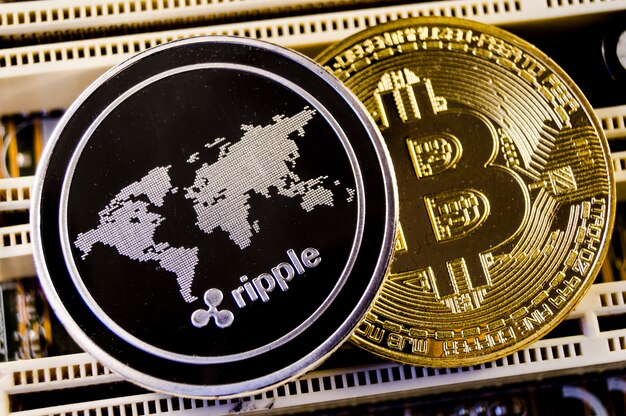The World of Bitcoin: How Much Bitcoin Really Exists Today?
Bitcoin, the first and most famous cryptocurrency, has generated curiosity and controversy since its inception. With questions swirling around how much Bitcoin really exists, why its supply is limited, and what factors influence its availability, it’s crucial to delve into these aspects. This article explores how much Bitcoin exists, including insights into its finite supply, mining process, and the implications for the cryptocurrency market.
Understanding Bitcoin’s Finite Supply
When Bitcoin was introduced by an anonymous entity known as Satoshi Nakamoto in 2009, it came with a unique feature that distinguishes it from traditional currencies: a limited supply that can never exceed 21 million coins. But why exactly was Bitcoin designed to be finite?
The Concept of Scarcity and Value
Scarcity Drives Value: In the world of economics, scarcity often drives value. By limiting the number of available Bitcoins, the cryptocurrency was designed to mimic precious commodities like gold.
Inflation Control: Traditional fiat currencies can be printed by central banks, leading to inflation. In contrast, Bitcoin's fixed supply guards against inflation, enhancing its appeal as a store of value.
Predictable Supply: Bitcoin’s release schedule is pre-determined, making it a predictable and controlled asset. This predictability is embedded into the Bitcoin protocol, ensuring that no more than 21 million Bitcoin will ever be mined.
Current Circulating Supply
Out of the 21 million Bitcoin cap, a significant portion has already been mined. As of 2023, approximately 19 million Bitcoin are in circulation. However, not all of these are actively available in the market. It's essential to understand the factors that further limit the available supply.
What Affects Bitcoin’s Availability?
While Bitcoin's hard cap is set in its cryptographic code, several factors impact true availability:
Lost Bitcoins
- Lost Keys, Lost Coins: Bitcoins are stored in digital wallets protected by cryptographic keys. If a user loses their private key, the Bitcoins in that wallet are essentially lost forever.
- Estimates and Impact: It is estimated that up to 20% of all mined Bitcoins are lost due to forgotten passwords or misplaced hardware—a significant reduction in active supply.
Dormant Wallets
- HODL Phenomenon: A substantial amount of Bitcoin is held in wallets that show no transaction activity, often termed as “HODLing” —a strategy where users hold their Bitcoins long-term in hopes of price increase.
- Market Implications: While such practices reduce available supply, they can also create market scarcity, potentially driving price surges.
Unmined Bitcoin
- Remaining Reserve: There are still approximately 2 million Bitcoins left to be mined. However, the rate at which these Bitcoins are released into circulation follows a diminishing schedule known as the Bitcoin Halving.
The Role of Bitcoin Mining
Bitcoin mining is the process through which new Bitcoins are introduced to the market. It's an integral part of the cryptocurrency's infrastructure and ensures network security.
How Mining Works
Proof of Work Protocol: Miners use computational power to solve complex mathematical puzzles, validating transactions and securing the network. This process is called "proof of work."
Block Rewards: Upon successful validation, miners receive a block reward—a certain number of newly minted Bitcoins. Initially, this reward was 50 Bitcoin per block.
The Bitcoin Halving Event
Reduction of Block Rewards: Approximately every four years, the reward for mining a block is halved. This event is known as Bitcoin Halving.
Impact on Supply: With each halving, the supply of new Bitcoins is reduced, which historically has led to price increases due to scarcity. The reward decreased from the initial 50 to 25, and as of this writing, it stands at 6.25 Bitcoin per block.
Future Projections: Predictions suggest that by 2140, all Bitcoin will have been mined, marking the full completion of the Bitcoin supply cycle, thereby restricting rewards to transaction fees only.
Balancing Demand and Supply
Bitcoin's market dynamics are significantly influenced by the balance between demand and supply. Let's explore how this balance affects Bitcoin's value.
Factors Driving Demand
- Market Sentiment: Public opinion, media coverage, and technological advancements influence Bitcoin’s popularity, hence its demand.
- Institutional Investment: An increase in institutional investments and acceptance by financial firms boosts Bitcoin’s legitimacy as a viable asset.
- Global Financial Uncertainty: In periods of economic instability, investors often flock to Bitcoin as a hedge against traditional market volatility.
Price Volatility
- Notorious Volatility: Bitcoin is known for its volatile price movements, driven by speculative investments, market sentiment, and macroeconomic factors.
- Influence of Limited Supply: As the supply gets closer to the cap, scarcity may increase volatility, with drastic fluctuations in demand leading to significant price changes.
Practical Takeaways: What to Keep in Mind
Understanding Bitcoin’s existence helps navigate its market dynamics. Here’s a summary of key points to consider:
📊 Bitcoin Supply Snapshot
- Total Supply Limit: 21 million Bitcoins.
- Current Supply in Circulation: Approximately 19 million.
- Lost or Inactive: Up to 20% considered lost.
💡 Key Influences on Availability
- Mining Rate: Restricted by halving events.
- Lost Keys: Permanently reduce available supply.
- Market HODLing: Limits circulating supply.
🔍 Market Considerations
- Scarcity Effect: Enhanced value through limited supply.
- Volatility: Influenced by supply constraints and market demand.
- Investment Trends: Institutional interest can drive demand and influence prices.
Navigating the Bitcoin Eco-System
Delving into how much Bitcoin exists enlightens us about its economic principles, scarcity, and supply chain dynamics. As the digital asset space continues to evolve, understanding these fundamentals empowers investors and enthusiasts alike to make informed decisions.
Whether you're a seasoned trader or venturing into cryptocurrencies for the first time, considering Bitcoin's finite existence, the implications of mining, and the forces of market demand are vital. After all, the finite nature of Bitcoin doesn’t only captivate imaginations—it shapes its very real-world value and impact on the global financial order.

